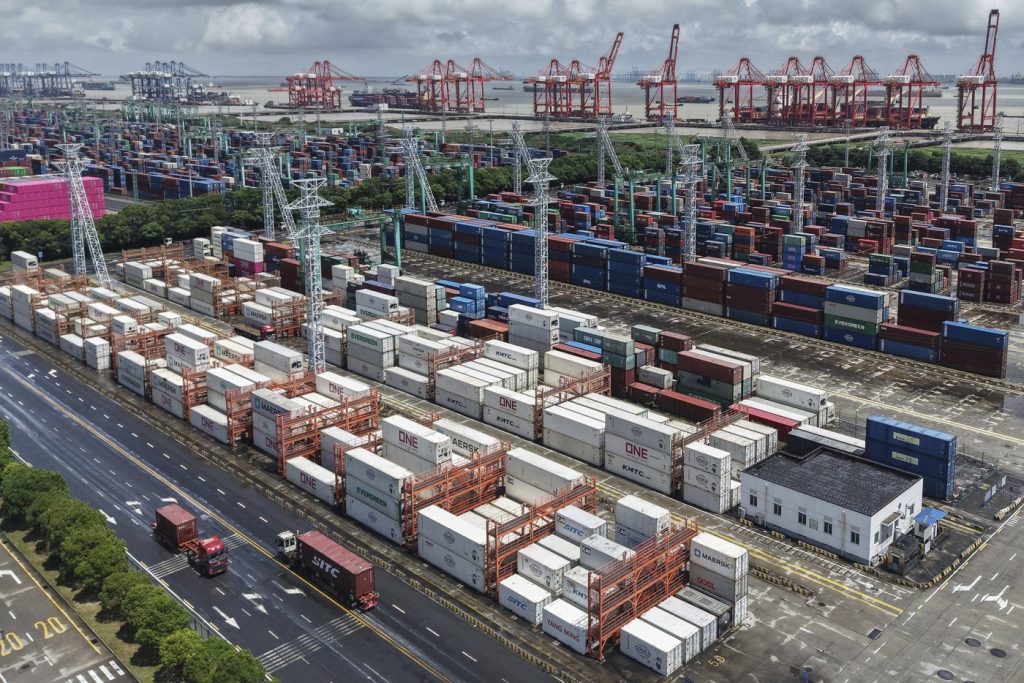BEIJING In a recent statement following trade talks with the United States, China’s top leaders have expressed their commitment to support companies impacted by rising U.S. tariffs. However, they refrained from announcing significant policy measures during their summer economic planning meeting, where the Politburo of the ruling Communist Party emphasized the need to stabilize foreign trade and investment.
The official Xinhua News Agency reported that the Politburo discussed the necessity of assisting foreign trade enterprises that have faced severe losses, enhancing financing support, and promoting the integrated development of domestic and foreign trade. Among the proposed measures were export tax rebates and free trade pilot zones; yet, no further specifics were provided.
The recent trade discussions held in Stockholm, Sweden, concluded without a clear resolution concerning the imposition of higher tariffs on Chinese products. Chinese Vice Premier He Lifeng stated that both parties had reached a preliminary agreement to consider extending the deadline for higher tariffs. The U.S. delegation acknowledged that while the extension was discussed, no final decision had been made.
U.S. Treasury Secretary Scott Bessent indicated that it would be President Donald Trump's decision whether to extend the August 12 deadline for an agreement or to reinstate tariffs that have been suspended for 90 days. He described the discussions as "very constructive" while clarifying that consent had not yet been granted.
China presents a significant challenge for the Trump administration, particularly as it has already negotiated elevated tariff rates with other crucial trading partners, including the United Kingdom, Japan, and the European Union. Analysts had anticipated that the Stockholm talks might lead to an extension of current tariff levels, which include a 30% tariff on Chinese goods and a 10% tariff on U.S. products, considerably lower than the triple-digit percentages implemented earlier in April.
The tariff truce, initiated in early May, was designed to provide a period for negotiations, allowing exporters to increase shipments and avoid anticipated higher tariffs. The meeting led by Chinese leader Xi Jinping focused primarily on affirming Beijing’s priorities for the year, such as stimulating domestic demand that has stagnated, which has led to a surge in exports from industries unable to secure growth in the domestic market. Furthermore, the meeting underscored the importance of job creation and preventing widespread poverty.
Despite highlighting the "strong vitality and resilience" of China’s economy, the Xinhua report acknowledged numerous risks and challenges, including fierce market competition that has resulted in damaging price wars among automakers and other sectors, as well as managing excess production capacity in certain industries. According to recent data, China’s economy grew at an annual rate of 5.2% from April to July, showing a slight slowdown compared to the prior quarter; however, analysts suggest that the actual growth rate may have been notably lower.
Even in the absence of escalated tariffs, companies in China are feeling the pressure, having faced a 1.8% decrease in industrial profits in the first half of the year, with a more pronounced drop of 4.3% in June alone. The ultimate tariff levels that may be applied to Chinese exports to the United States remain uncertain.
Chinese Foreign Ministry spokesman Guo Jiakun reiterated Beijing's hopes that the U.S. would honor the “important consensus” reached in a phone call between President Trump and Xi Jinping, aimed at fostering stable relations between the two leading global economies. Nonetheless, Guo stressed China's position regarding U.S. objections to its imports of oil and gas from Russia, which Bessent raised during the Stockholm discussions, warning of potential additional tariffs.
Guo asserted, “China will take reasonable measures to ensure energy security in accordance with its national interests.” He emphasized that there are “no winners in a tariff war” and cautioned that coercion and pressure will not resolve the underlying issues, affirming that China would firmly protect its sovereignty, security, and developmental interests.











